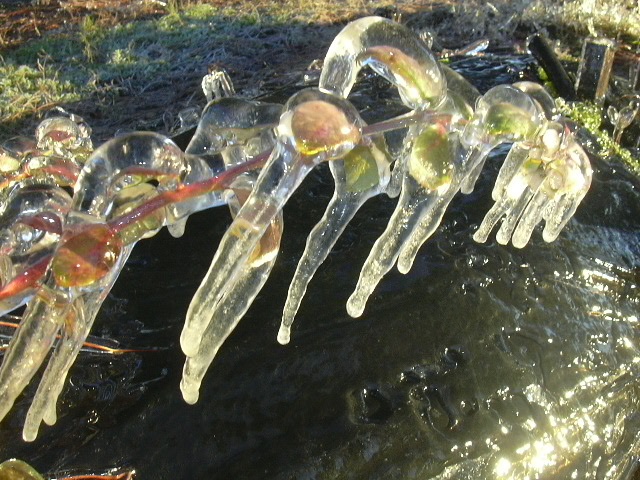
Protect Your Crops From Frost Damage!
The natural and agricultural environment is highly affected by climate change. The leafing out, blooming, flowering, ripening of fruits, water balance and so on are all very susceptible to stress and severe damage as a result of extreme weather.
One of these extreme weather events is the drop of temperatures below 0°C, namely frost. When these drops in temperature occur out of season, the plants are ill-equipped to cope with it on the physiological level, and they suffer severe damage as a result.
There are two kinds of frost:
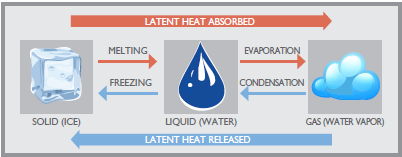
Advection Frost (Windy Frost or Black Frost) occurs when a cold air mass (cold front) moves into an area, bringing freezing temperatures. Wind speed is usually above 8hm/h. Possible protection against this kind of frost is very limited.
Radiation Frost occurs when, with a clear sky and calm winds, the temperature near the surface of the earth drops to below freezing point. As temperatures drop, the cold air flows downward to lower topographic areas. That is where most of the damage is seen. Efforts have been made to come up with a solution for this kind of frost; a way to alleviate the damage caused by the low temperatures. In order to do so, we utilise the same basic laws of nature that play an important role in creating the frost itself.
1: Overhead Full Cover
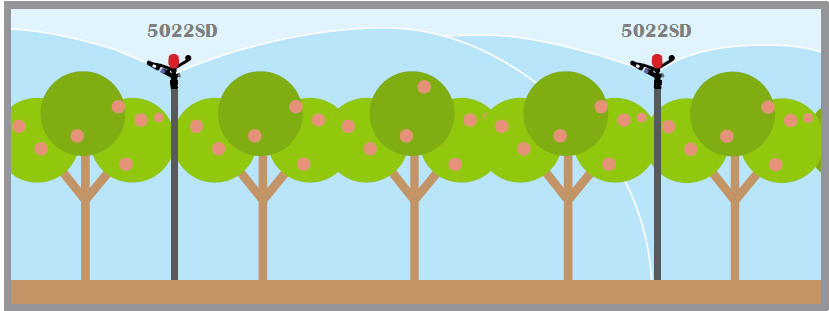
Overhead sprinkler irrigation is a very common practice in frost protection. Overhead irrigation provides excellent frost protection at temperatures of -7°C and lowers if the application rates are sufficient and the application is uniform.
Conventional overhead sprinkler systems use standard impact sprinklers to completely wet the plants and soil. Sprinkler distribution uniformity is important to prevent inadequate coverage, which might result in damage. For frost protection, specially designed springs are often used, which are protected by an enclosure to prevent the icing of the heads. In short, the conventional overhead full cover method, when applicable, provides excellent protection and is the most common and safest frost protection solution. Widely used in open field crops, all kinds of orchards, blueberries etc.
2: Targeted Micro Sprinklers
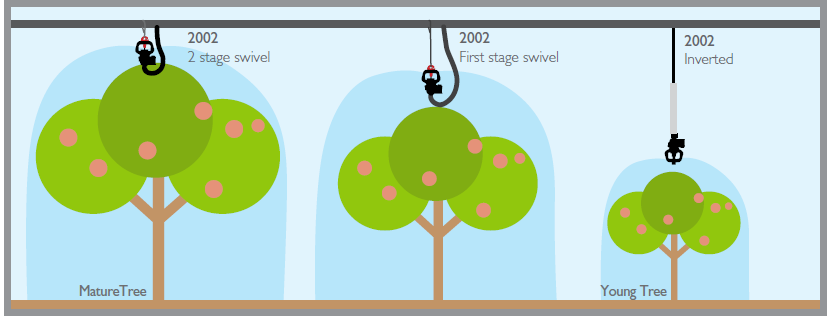
Targeted micro sprinklers spray the water directly onto the plants, with smaller amounts of water falling between plant rows. Usually a single micro-sprinkler is positioned above a single tree. A big advantage of using targeted sprinklers is that they commonly have much lower flow rates compared to conventional sprinklers. In other cases, like some of the fruit wall crops, an over lapping spacing between the micro-sprinklers is applied and a continues wetting zone is achieved along the relatively narrow row of trees, giving perfect targeted protection.
One of the advantages of targeted micro-sprinklers is their ability to protect larger areas with a given amount of water. On the other hand, one of the limiting factors of this kind of frost protection is the possibility of water freezing inside the narrow tubes leading up to the emitters. The flow velocity will determine the point of freezing.
3. Strip Method
In many cases, especially in apple orchards, there is a 3-metre gap between the rows of the trees, and the rows themselves are very narrow, creating a “fruit wall” configuration. Other crops, such as berries, grapevines, or vines in general, are also grown in narrow rows. If we could irrigate only the row itself, without applying water to the spaces between the rows, we would be able to save huge amounts of water, making it possible to protect a much larger area at the same time.
The bottom line is precision. Only the plants need to be protected; not the roads or the spaces between trees.

The NDJ flipper allows you to do all that with flying colours! While applying significantly less water per hectare, we provide the same exact protection.
However the grower/irrigation manager should be well versed in its use, as the Frost Protection method requires technical knowledge to ensure its used correctly and to lower the risk of complications.

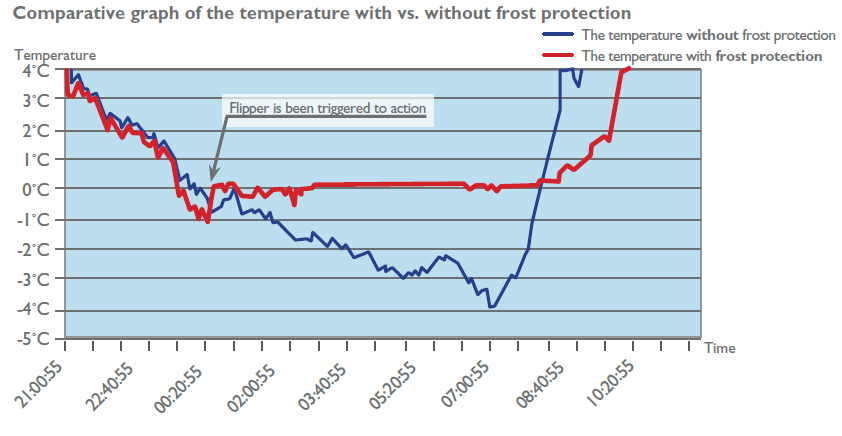
For More Information About Frost Protection or the Products, Please Use the Links Below
To See If Your Crops Are As Protected As They Can Be, Fill In Our Contact Form or Call 01925 818 499 Today to Book Your FREE Site Survey!
